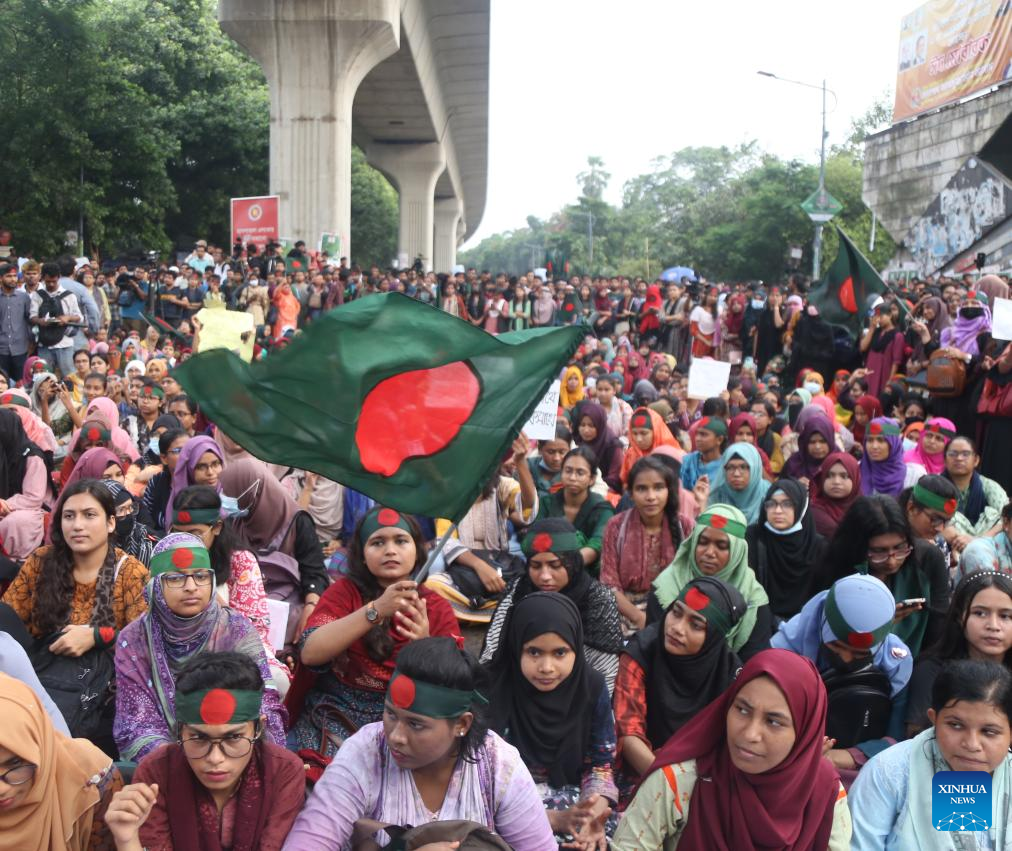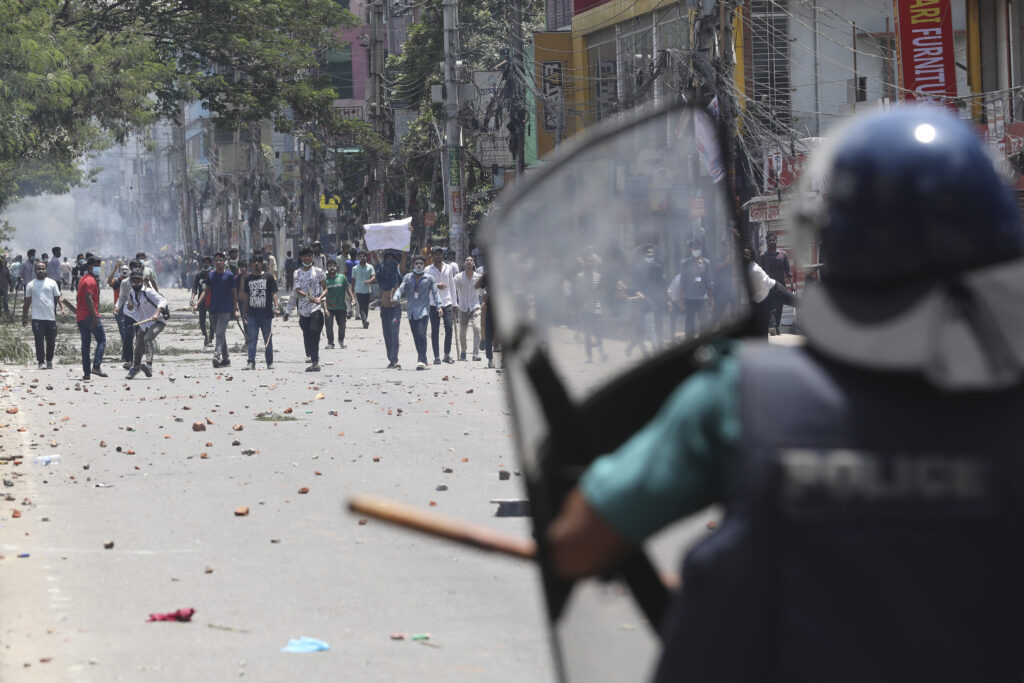The quota system in Bangladesh government jobs reserves a percentage of positions for specific groups. This aims to ensure equal opportunities.
The quota system in Bangladesh’s government jobs allocates positions to various underrepresented groups, including women, ethnic minorities, and people with disabilities. This approach seeks to create a more inclusive workforce by addressing historical disadvantages. Critics argue that it may overlook merit, while supporters believe it promotes social equity.
The system has sparked debates on its effectiveness and fairness, leading to calls for reform. Understanding its implications is essential for comprehending the broader context of employment and social justice in Bangladesh. The quota system continues to be a pivotal topic in discussions about equality and meritocracy in the country’s public sector.
Types Of Quotas
The quota system in government jobs in Bangladesh aims to ensure diversity and equal opportunity. Various types of quotas exist to help underrepresented groups. These quotas ensure fairness in the recruitment process.
Regional Quotas
Regional quotas help balance job opportunities across different areas. They ensure that people from less-developed regions get a fair chance. This quota aims to reduce regional disparities in employment.
- Urban vs Rural: A significant focus is on rural areas.
- Underdeveloped Regions: Special attention to less-developed areas.
Gender-based Quotas
Gender-based quotas aim to promote gender equality. They ensure that women have equal access to government jobs. This helps reduce gender discrimination in the workforce.
- Women: A specific percentage of jobs reserved for women.
- Men: Balancing the workforce by including men in traditionally female roles.
Ethnic And Minority Quotas
Ethnic and minority quotas support diversity in the workplace. They provide opportunities for ethnic and minority groups. These quotas help ensure representation for all communities.
| Group | Percentage |
|---|---|
| Indigenous Communities | 5% |
| Religious Minorities | 10% |
These quotas aim to create a balanced and inclusive workforce. They ensure that every group has equal opportunities in government jobs.
Eligibility Criteria
The quota system in government jobs in Bangladesh has specific eligibility criteria. These criteria ensure fairness and transparency in the recruitment process. Below, you will find detailed information on the educational requirements, age limits, and specific conditions that candidates must meet.
Educational Requirements
Candidates must have certain educational qualifications. These qualifications vary based on the job position.
- Minimum qualification is usually a high school diploma.
- For higher positions, a bachelor’s degree is often required.
- Technical roles may need specialized certifications.
Each job post will specify the exact educational requirements.
Age Limits
Age is a crucial factor in government job eligibility. Different categories have different age limits.
| Category | Minimum Age | Maximum Age |
|---|---|---|
| General Candidates | 18 years | 30 years |
| Freedom Fighter Quota | 18 years | 32 years |
| Disabled Candidates | 18 years | 32 years |
Specific Conditions
Some candidates must meet additional conditions.
- Freedom Fighter Quota: Must provide a certificate from the Ministry of Liberation War Affairs.
- Tribal Quota: Must belong to a recognized tribal community.
- Disabled Candidates: Must provide a disability certificate from a recognized medical board.
These conditions ensure that the quota system benefits the intended groups.
Application Process
The application process for government jobs in Bangladesh under the quota system is crucial. This guide will help you understand the steps involved. Follow each step carefully to ensure a smooth experience.
Document Submission
Submitting the correct documents is vital. Here’s a list of required documents:
- National ID Card
- Birth Certificate
- Academic Certificates
- Quota-related Certificates
Ensure all documents are up-to-date. Check that they are correctly attested. Scan all documents in high quality.
Verification Procedures
The verification process involves several steps. Authorities will verify your submitted documents. They will also check your eligibility for the quota.
Follow these steps for verification:
- Submit all required documents.
- Wait for the initial review.
- Attend any required interviews.
- Provide additional information if asked.
Ensure you are available for any follow-up queries. Keep your contact information updated.
Common Mistakes
Avoid these common mistakes during the application process:
- Submitting incomplete documents.
- Providing outdated certificates.
- Ignoring follow-up requests.
- Giving incorrect contact information.
Double-check all information before submission. Ensure all details are accurate. This will help in avoiding delays and rejections.

Credit: www.reddit.com
Benefits Of Quota System
The quota system in Bangladesh’s government jobs brings many benefits. It aims to create a balanced and inclusive workforce. This system addresses various socio-economic and regional disparities.
Social Inclusion
The quota system promotes social inclusion. It ensures that marginalized groups have access to government jobs. These groups include ethnic minorities and people with disabilities. This system helps in reducing social inequalities.
By providing opportunities, it helps in uplifting these communities. This leads to a more inclusive society. It also fosters a sense of belonging among these groups.
Regional Development
The quota system helps in regional development. It ensures that people from remote areas get government jobs. This leads to balanced regional growth.
Table showing benefits of regional development:
| Benefit | Impact |
|---|---|
| Employment | More jobs in remote areas |
| Infrastructure | Improved facilities |
| Education | Better schools and colleges |
These benefits lead to the overall development of these regions. It helps in reducing the urban-rural divide.
Gender Equality
The quota system promotes gender equality. It ensures that women have equal opportunities in government jobs. This helps in breaking traditional gender roles.
- More women in leadership roles
- Better representation of women in the workforce
- Encourages women to pursue higher education
These points show how the quota system helps in achieving gender equality. It empowers women and promotes a balanced workforce.
Criticisms And Challenges
The quota system in government jobs in Bangladesh has sparked debates. This system ensures representation for various groups. Yet, it faces significant criticisms and challenges.
Perceived Inequities
Many people feel the quota system is unfair. They believe it disadvantages merit-based candidates. A large percentage of positions are reserved. This leaves fewer opportunities for others. Some argue it can lead to less qualified candidates getting jobs.
Implementation Issues
Implementing the quota system is complex. Ensuring fairness is challenging. Often, the criteria for quotas are unclear. This can lead to confusion and inconsistencies. Some regions may not follow the rules properly. This results in unequal distribution of jobs.
There are also issues with verification processes. Verifying the eligibility of candidates can be hard. This can lead to fraud or misuse of the system. Proper monitoring is needed to address these issues.
Public Opinion
The public has mixed opinions on the quota system. Some support it for promoting social justice. Others criticize it for reducing job opportunities for all. Many students and job seekers protest against it. They want a merit-based system instead. These protests highlight the tension around this policy.
A survey on public opinion revealed diverse views:
| Group | Support Quota | Oppose Quota |
|---|---|---|
| Students | 30% | 70% |
| General Public | 50% | 50% |
| Government Employees | 60% | 40% |
This table shows the division in opinions. The debate continues, with strong arguments on both sides.

Credit: english.news.cn
Reforms And Changes
The quota system in Bangladesh’s government jobs has seen several reforms and changes. These changes aim to ensure fairness and meritocracy. This section delves into recent amendments, proposed changes, and the future outlook of the quota system.
Recent Amendments
Recent amendments have reshaped the quota system significantly. The government reduced the quota percentage from 56% to 20%. This decision came after student protests demanding fairer opportunities. The new distribution is as follows:
| Category | Quota Percentage |
|---|---|
| Freedom Fighters’ Family | 10% |
| Women | 10% |
| Ethnic Minorities | 5% |
| Disabled | 1% |
Proposed Changes
Proposed changes aim to make the system even fairer. Some suggest eliminating the quota system entirely. Others propose introducing a new merit-based system. The government is considering these suggestions seriously. The key proposals include:
- Eliminating the quota system.
- Introducing a merit-based system.
- Ensuring equal opportunities for all candidates.
Future Outlook
The future of the quota system in Bangladesh looks promising. The government is committed to ensuring fairness. They aim to balance merit and social justice. Future reforms may focus on:
- Further reducing quota percentages.
- Ensuring transparency in recruitment.
- Implementing a hybrid system of merit and social justice.
Bangladesh is moving towards a more meritocratic system. This ensures that the most qualified candidates get government jobs.
Case Studies
The quota system in Bangladesh has been a topic of debate. This section will delve into real-life examples. We’ll look at both successes and controversies. We will also assess the impact.
Success Stories
Many individuals have benefited from the quota system. Let’s look at some notable success stories:
| Name | Quota Category | Achievement |
|---|---|---|
| Rahim Ahmed | Freedom Fighters’ Quota | District Magistrate |
| Nazma Begum | Women’s Quota | Police Superintendent |
Controversial Cases
Not all cases are success stories. There have been controversial cases too:
- Merit Overlooked: Some argue that more qualified candidates were overlooked due to the quota system.
- Misuse of Quota: There have been instances where the quota was allegedly misused.
Impact Assessment
The impact of the quota system has been mixed. Let’s break it down:
- Positive Impact: Many underprivileged groups have gained opportunities.
- Negative Impact: Some argue it has lowered the overall quality of government jobs.

Credit: www.voanews.com
Conclusion
The quota system in government jobs in Bangladesh sparks debate. It aims to balance opportunities but faces criticism. Striking a fair balance remains essential. Continuous review and adjustments can help. Ensuring transparency and fairness is key. The goal is an inclusive workforce, reflecting the diversity and talent of Bangladesh.



